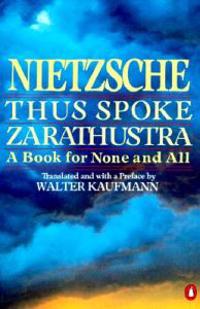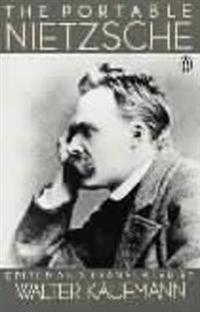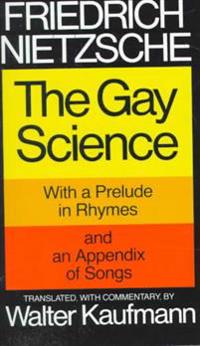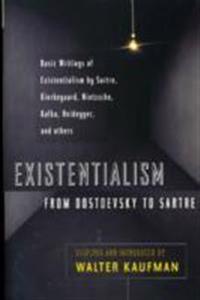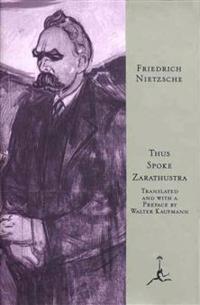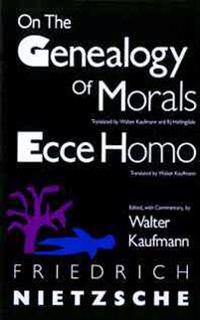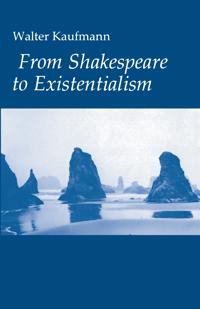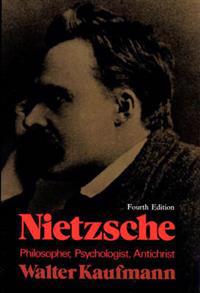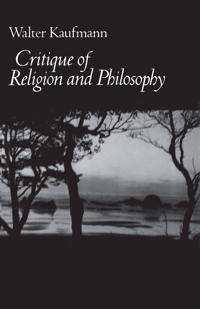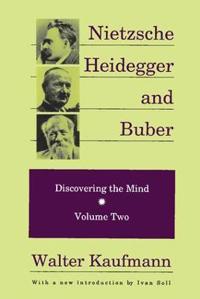The Present Age: On the Death of Rebellion (Häftad)
avSoren Kierkegaard, Walter Kaufmann
ISBN: 9780061990038 - UTGIVEN: 2010-08In his seminal 1846 tract The Present Age, Soren Kierkegaard ("the father of existentialism"--New York Times) analyzes the philosophical implications of a society dominated by mass media--a society eerily similar to our own. A stunningly prescient essay on the rising influence of advertising, market[...]
Walter Kaufmann
ISBN: 9780691165011 - UTGIVEN: 2018-11The first complete account of the ideas and writings of a major figure in twentieth-century intellectual lifeWalter Kaufmann (1921-1980) was a charismatic philosopher, critic, translator, and poet who fled Nazi Germany at the age of eighteen, emigrating alone to the United States. He was astonishing[...]
Thus Spoke Zarathustra (Pocket)
avFriedrich Wilhelm Nietzsche, Walter Arnold Kaufmann, Friedrich Wilhelm Nietzsche
ISBN: 9780140047486 - UTGIVEN: 197801The Portable Nietzsche (Storpocket)
avFriedrich Wilhelm Nietzsche, Walter Arnold Kaufmann
ISBN: 9780140150629 - UTGIVEN: 199412The works of Friedrich Nietzsche have fascinated readers around the world ever since the publication of his first book more than a hundred years ago. As Walter Kaufmann, one of the world's leading authorities on Nietzsche, notes in his introduction, "Few writers in any age were so full of ideas", an[...]
The Gay Science (Pocket)
avFriedrich Wilhelm Nietzsche, Walter Arnold Kaufmann, Friedrich Wilhelm Nietzsche
ISBN: 9780394719856 - UTGIVEN: 197410Nietzsche called The Gay Science "the most personal of all my books." It was here that he first proclaimed the death of God -- to which a large part of the book is devoted -- and his doctrine of the eternal recurrence.Walter Kaufmann's commentary, with its many quotations from previously untranslate[...]
Thus Spoke Zarathustra (Inbunden)
avFriedrich Wilhelm Nietzsche, Walter Arnold Kaufmann
ISBN: 9780679601753 - UTGIVEN: 199606On the Genealogy of Morals/Ecce Homo (Pocket)
avFriedrich Wilhelm Nietzsche, Walter Arnold Kaufmann, R. J. Hollingdale
ISBN: 9780679724629 - UTGIVEN: 198912The great philosopher's major work on ethics, along with ECCE HOMO, Nietzche's remarkable review of his life and works. Translated by Walter Kaufmann.[...]
From Shakespeare to Existentialism (Häftad)
avWalter Arnold Kaufmann
ISBN: 9780691013671 - UTGIVEN: 198007Explores such themes as philosophy versus poetry, post-World War II German thought, art, tradition, and truth in a collection of essays.[...]
Nietzsche (Häftad)
avWalter Arnold Kaufmann
ISBN: 9780691019833 - UTGIVEN: 197502This classic is the benchmark against which all modern books about Nietzsche are measured. When Walter Kaufmann wrote it in the immediate aftermath of World War II, most scholars outside Germany viewed Nietzsche as part madman, part proto-Nazi, and almost wholly unphilosophical. Kaufmann rehabilitat[...]
Critique of Religion and Philosophy (Häftad)
avWalter Arnold Kaufmann
ISBN: 9780691020013 - UTGIVEN: 197904Nietzsche, Heidegger and Buber (Häftad)
avWalter Arnold Kaufmann, Ivan Soll
ISBN: 9780887383946 - UTGIVEN: 199107



